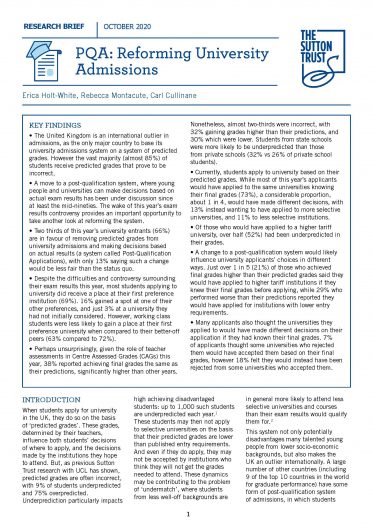Report Overview
When students apply for university in the UK, they do so on the basis of ‘predicted grades’. These grades influence both students’ decisions of where to apply, and the decisions made by the institutions they hope to attend. But, they are, more often than not, incorrect, with 9% of students underpredicted and 75% overpredicted. Underprediction particularly impacts high achieving disadvantaged students: up to 1,000 such students are underpredicted each year.
A change to the system, which would remove predicted grades, while not a silver bullet for university access, could help to level the playing field for students from less advantaged backgrounds and improve informed decision making, while bringing the UK in line with common practices used internationally.
This brief, authored by Erica Holt-White, Rebecca Montacute and Carl Cullinane looks at options for admissions reform, and examines the perspective of young people themselves. After the A Level results crisis in August 2020, we polled university applicants to see how they felt about the current university admissions system, and whether it could be improved.
